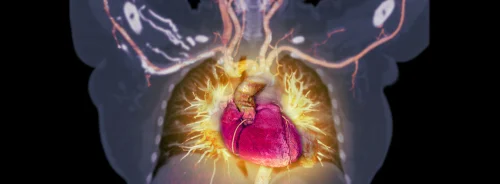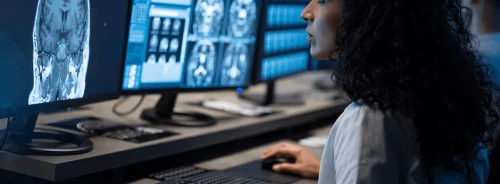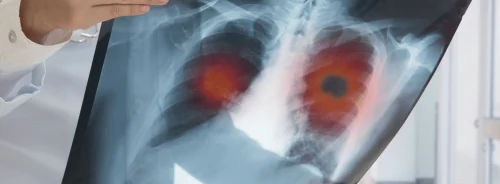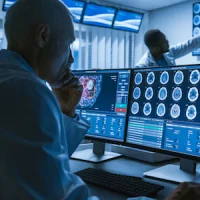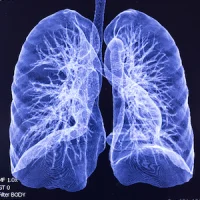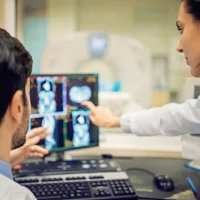Artificial intelligence's growing applications in radiology are leading to transformative change in this field of medicine. With this surge in AI implementation, there is also a growing sense of helplessness among radiological professionals, which should not be the case, according to researchers at three Canadian institutions.
As frontline healthcare professionals, radiologists have a better grasp on how changes in technology can impact both workflow and patient care, note Andrew Murphy, BMedImagingSc, MMIS, RT(R) and colleagues in their commentary published by the Journal of Medical Imaging and Radiation Sciences.
Instead of being passive by simply watching from the sidelines as AI takes hold, Murphy and co-authors urge radiologists to take an active role as healthcare organisations adopt the technology.
"We must make our voice heard during vendor demonstrations and conferences and ultimately in our research,'' said Murphy, a radiographer with St Paul's Hospital in Vancouver who is concurrently editor of JMIRS. "Rather than whisper in the corridors of our respective workplaces, we must find the courage to share information with confidence. If a new application changes practice, why not audit that change and publish it?"
To ensure that AI algorithms and tools are used safely and responsibly, the article notes that some radiological professionals are already consulting with AI developers and industry organisations, in addition to publishing their own AI-related research.
"Our priority must be ensuring that any tools suggested for implementation in our workplaces will result in a healthy balance between efficiency and the well-being of both patients and those providing care," Murphy and colleagues point out.
The article also discusses some of the more common applications of AI in radiology as well as the accompanying ethical issues, such as privacy and data protection, algorithmic bias, etc.
Moreover, the authors highlight the need for professional organisations – eg, the Canadian Association of Medical Radiation Technologists, Australian Society of Medical Imaging and Radiation Therapy, and The European Federation of Radiographer Societies – to develop their own strategies for approaching AI. Such strategies and guidelines will be useful resources for their members in learning more about the nuances of AI in their respective industries.
The authors cite how radiologists have successfully transitioned to the digital and three-dimensional ages, adding that radiological professionals can also conquer the era of AI if they approach it with the same “cautious optimism and an appetite to be involved.”
"As medical radiation professionals, we possess unique clinical experience and research talent. Harnessing this talent to ensure AI is used both safely and ethically is vital," concluded Murphy and colleagues. "There are enough computer scientists to write new algorithms; what we require are engaged health care professionals, making their voice heard to ensure that the overall outcome of this technological revolution is for the greater good of society."
Source: Journal of Medical Imaging and Radiation Sciences
Image: iStock
Latest Articles
Radiology, algorithms, big data, data protection, Artificial Intelligence, digital health, deep learning, 4th COCIR Digital Health Summit, algorithmic bias, AI-related research, technological evolution
Artificial intelligence's growing applications in radiology are leading to transformative change in this field of medicine. With this surge in AI implement...

